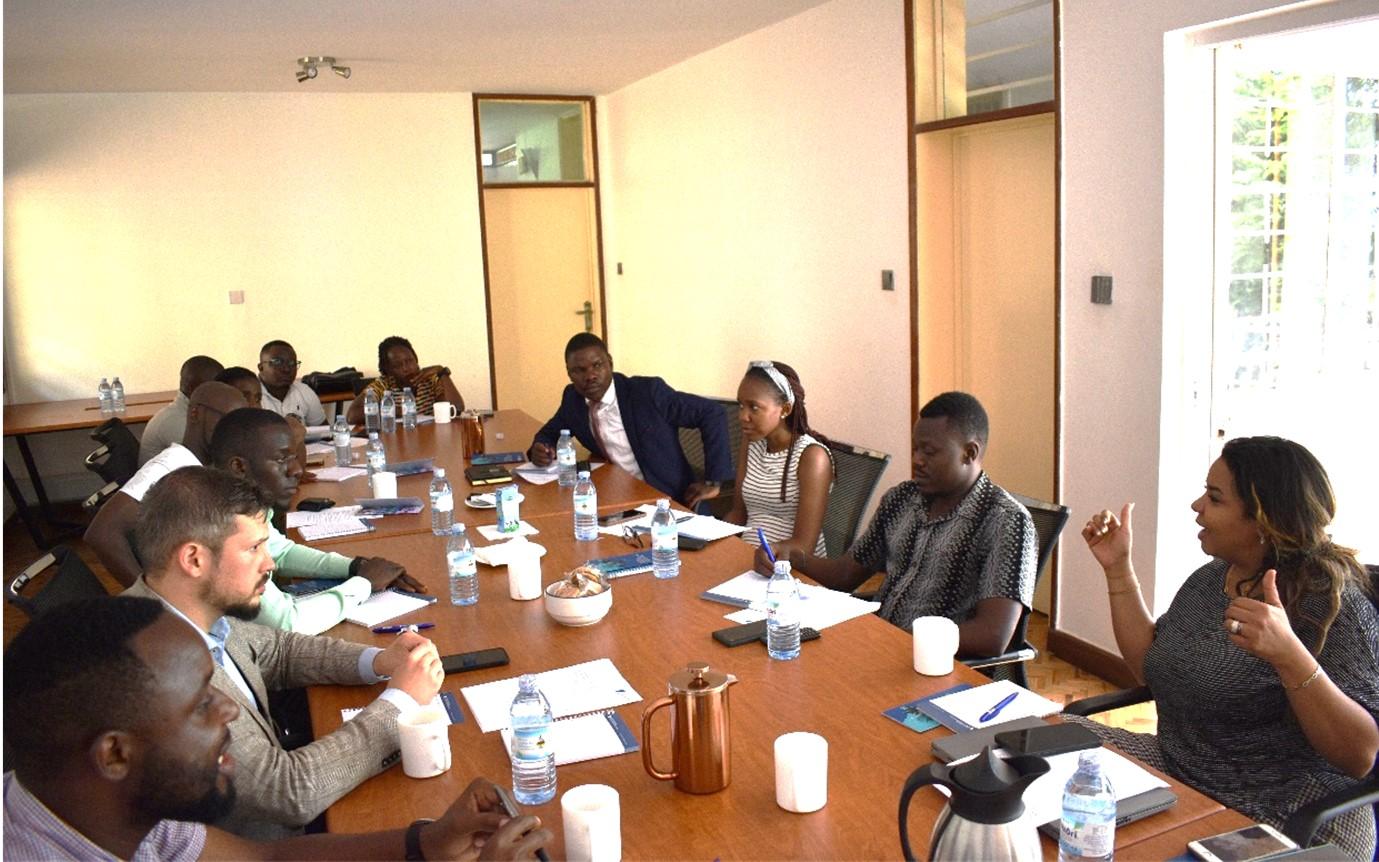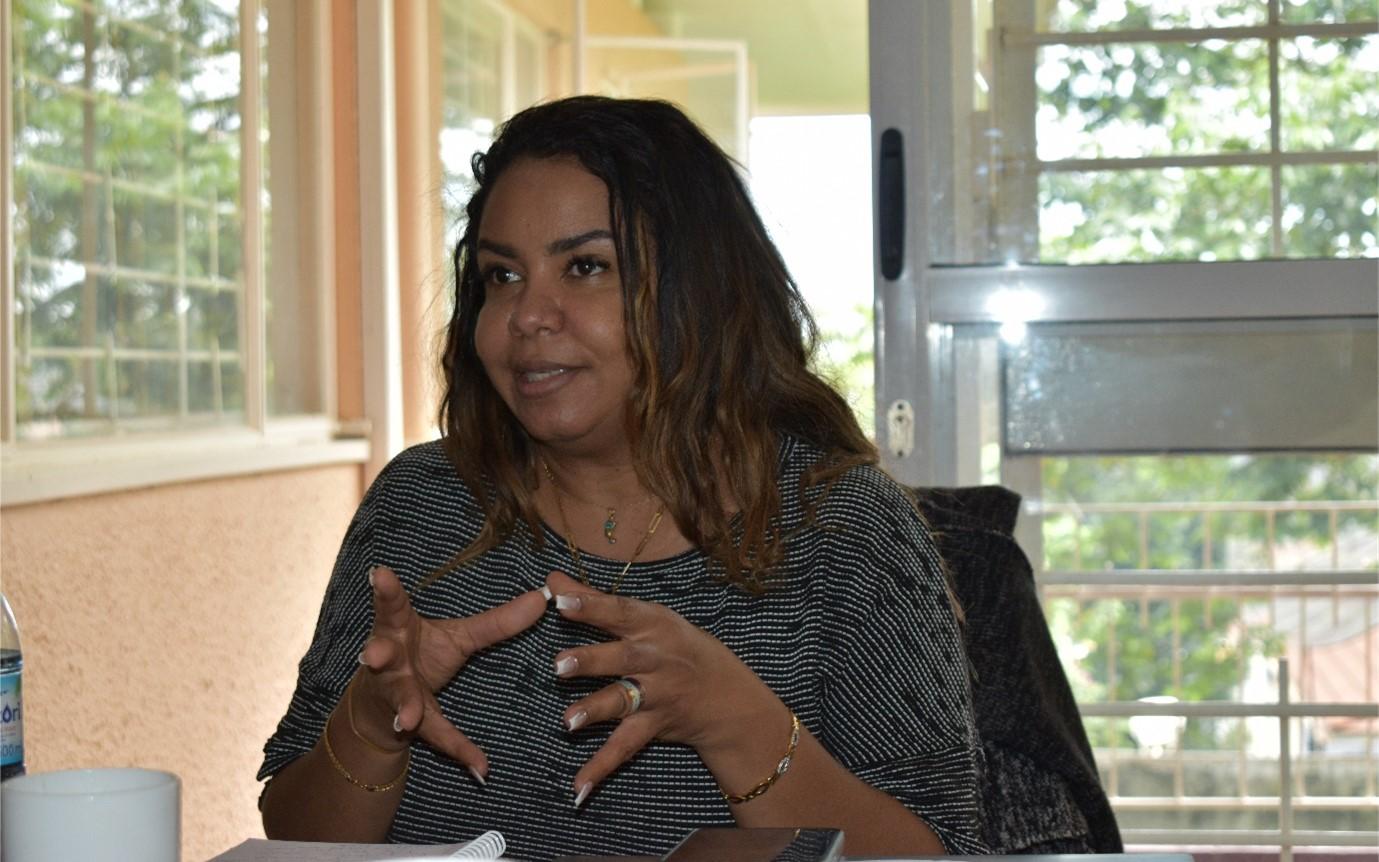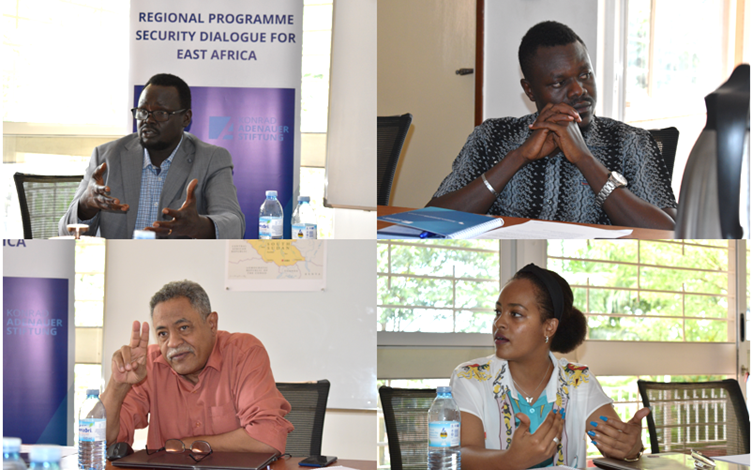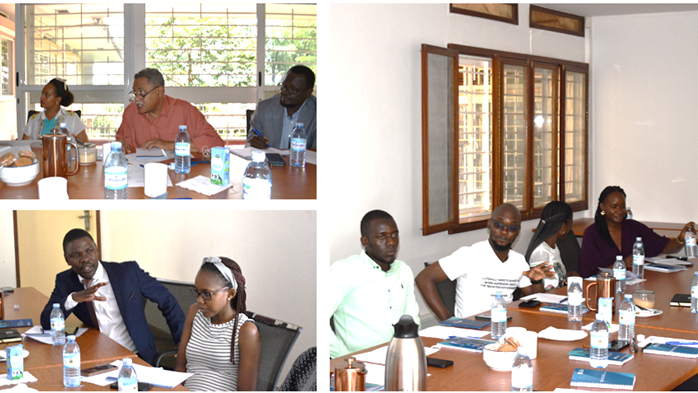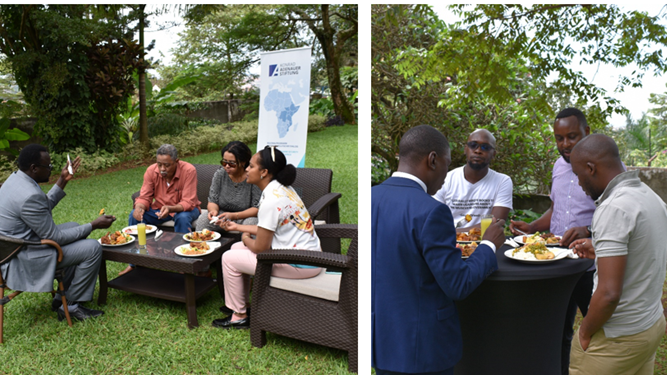At the discussion, Shaza Elmahdi, Country Director for Sudan of the Center for International Private Enterprise (CIPE) gave the initial input elaborating the genesis of the conflict, the current trends, and the humanitarian situation in Sudan. Robert Antipas, the Executive Director of the South Sudanese Think Tank SPACE (Strengthening Performance and Accountability through Community Engagement), and Bol Bulabek, Project Manager at DetCro, a South Sudanese research and consultancy firm, elaborated the impact of the fighting in Sudan on South Sudan. The other contributors were Mohamed Latef Ali and Eynas Mohamed Latef, both from the Sudanese Media organisation TEEBA Press.
The contributors highlighted the dire humanitarian conditions that Sudanese are facing, with over 22 million people at risk of acute hunger, including 8 million who are internally displaced and over 2 million who have crossed borders as refugees. This situation has been exacerbated by the attacks of the Islamist Houthi militia in the Red Sea on civil cargo ships that has made it difficult for aid items to be shipped through that water strip between Eastern Africa and the Arabic Peninsula to Port Sudan.
Fears that the conflict in Sudan could escalate into a regionalised conflict were also pronounced, given the involvement of foreign actors and regional non-state armed groups form especially South Sudan and Chad. External military support to the warring factions, not only shifts the balance of forces at the war front but also prolong and escalate the fighting. The reluctance by regional actors to intervene, the frustrating failure of peace talks, and the constant violation of ceasefires were also cited as reasons for failed mediation efforts. The conflict in Sudan allows for proliferation of arms across countries and could fuel extended conflicts in the region.
For South Sudan, the war in Sudan bears huge challenges. The shared history between the two countries restricts the government in Juba to a neutral position, yet their economic dependence on Sudan, calls for intervention and faster resolution of the conflict. 90 per cent of South Sudan’s revenue is from oil, hence the disruption of export of South Sudan’s oil through Port Sudan has a biting effect on South Sudan’s economy and has triggered hyper inflationary conditions.
In all, the discussion noted that the conflict in Sudan presents a complex and evolving regional challenge, with the potential for far-reaching consequences. While external influence plays a major role, internal, Sudanese power struggles remain central and threaten continued violence. The involvement and responses of neighbouring states, influenced by economic, political, and security considerations, will play a crucial role in shaping the conflict's trajectory and its impact on the broader region.
About this series
The Konrad-Adenauer-Stiftung, its educational institutions, centres and foreign offices, offer several thousand events on various subjects each year. We provide up to date and exclusive reports on selected conferences, events and symposia at www.kas.de. In addition to a summary of the contents, you can also find additional material such as pictures, speeches, videos or audio clips.



